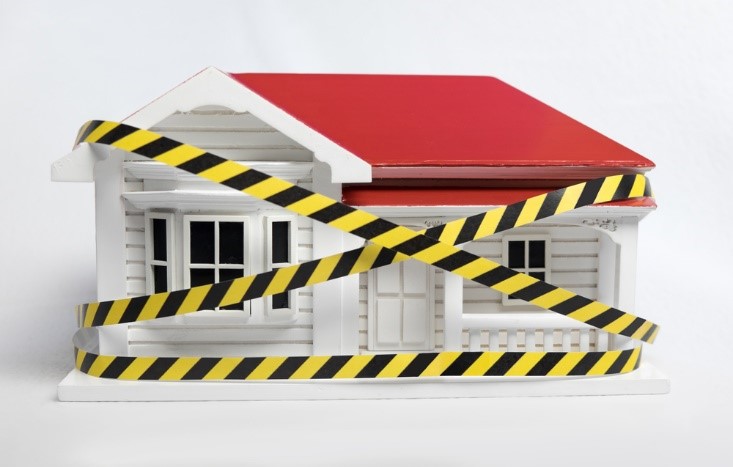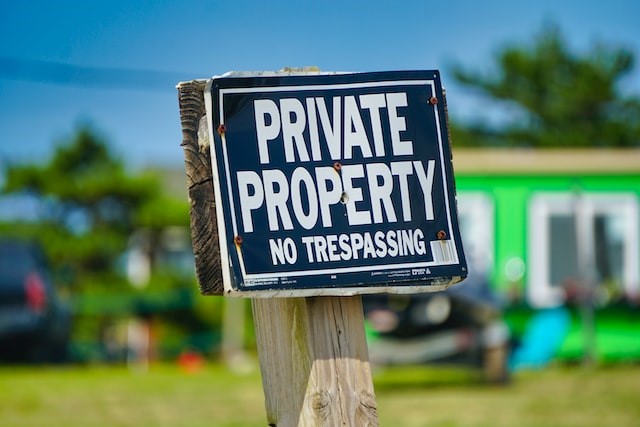What Is Condemnation in Real Estate?

Condemnation is a legal process through which private property is acquired by the government or a private entity.
Let’s keep defining the meaning of this real estate term:
Typically, it is done for two main reasons: eminent domain or to enforce safety and local codes. Condemnation can be permanent or temporary. A portion of your entire property can be seized.
We will discuss in detail the main reasons for condemnation, how a condemnation process through eminent domain works, and whether you can contest the seizure of the property and still be able to sell your house to home buyer.
KEY TAKEAWAYS:
- Condemnation in real estate is when the government takes property from an owner.
- The government can take it for a variety of reasons including national security,
- If you are facing condemnation I am sorry – it sucks!
- The government is meant to give you fair compensation but we all know how that works out… right?
- Condemnation can also occur if a house is extremely rundown and unsafe in which case the government would take possession and demolish the building.
- In most cases investors should avoid houses undergoing condemnation if they need to turn their money quickly.
Table of Contents
Main Reasons for Condemnation
To Enforce Safety and Housing Codes
The local government authorizes condemnation for safety reasons or violation of local codes. It can be temporary until the property owner takes measures to address or improve the conditions to avert the risk.
Or, it can be permanent, whereby the local government takes up the ownership of the property or transfers it to a third party for demolition or reconstruction.
The local government can also condemn property if it is deemed a nuisance. For example, if it is dilapidated, abandoned, or poorly maintained.
If the building has major damage—either due to normal tear and wear over time or a major event such as an earthquake, fire, etc.—it can be condemned until it is repaired. However, if the damage was too extensive, the condemnation could be permanent.
Through Eminent Domain
Eminent domain is the right of a government or a government agent to claim private land for public use.
According to the United States Constitution, state and federal governments have the right to condemn private property for public use through eminent domain.
For example, for construction of roads, railways, airports, airlines, pipelines, public buildings, extraction of raw materials, etc.
However, the fifth Amendment stipulates that the government is responsible for giving the property owner adequate notice to vacate the property—if need be—and offer fair compensation. The seizure must be strictly for public purposes.

How Does Condemnation Through Eminent Domain Work?
Once the government has identified that your property is suitable for a public project, they will send an agent to inspect and appraise it.
This is to determine its fair market value. They then give you a condemnation notice and make an offer to purchase it.
The government follows specific appraisal standards to determine a fair compensation amount.
The appraiser must factor in the property’s intended use and estimated market value. The estimated market value of the property is based on:
- The size and dimensions of the property
- If any improvements have been made to the property
- The geographical location of the property
- Condition of the property, e.g., recently built vs. damaged and abandoned
- Topography of the land
- Road and water access
The appraiser then conducts a market analysis to compare the property against similar properties in the area. They then prepare a valuation report and indicate the property’s fair market value.
They submit the report to the government to serve as a guide for determining a fair compensation amount to offer the private property owner. The compensation amount is subject to tax deductions, as would be if you had sold the property.
Does anyone get paid a commission through the condemnation of a property?
Commissions are not paid to anyone throughout any part of the condemnation process.
How to Proceed When Issued With a Condemnation Offer
The right cause of action depends on the reason for condemnation and whether it is permanent or temporary.
In the case of a temporary condemnation for safety or health reasons, you need to take immediate action as required by the local government to repair or reconstruct the property.
Failure to which the condemnation may be made permanent. Besides, the longer you take to rectify the issues, the more the costs add up.
On the other hand, if the acquisition is through eminent domain, you can challenge the condemnation order in court if you believe that you have not been compensated fairly or that seizure of the property is not intended for public use.
Contesting a government condemnation order is known as inverse or reverse condemnation. You need the help of an experienced eminent domain attorney to contest the order.
You will need to hire an independent appraiser to value the property for a value-based appeal. If the appraised value is higher than what the government offers, your attorney has a basis for renegotiating your compensation amount. You can also claim sentimental value in the property.
If your appeal is based on the property’s intended use, you must prove that the government overstepped, and that the seizure is not intended for public use.
On the other hand, the government must prove that the acquisition is in public interest.
Although you can contest the amount you are offered for compensation, it can be difficult to stop the seizure. Therefore, the ultimate goal is for your attorney to negotiate the best compensation for you for the loss of the property out of court.
Is Condemnation the Same as Eminent Domain?
Often, the terms condemnation and eminent domain are used interchangeably. However, they are not synonymous. Condemnation is the actual process of seizing land by the government for various reasons.
On the other hand, eminent domain is a legal provision that allows governments to seize property for public use and offer the owner financial compensation.
As discussed above, condemnation can result from an eminent domain as stipulated in the law. It can also be to enforce safety and health according to local codes.
Who Has Condemnation Authority in the US?
Mainly, the federal and state government have condemnation authority in the US. However, they can delegate to specific agencies or private entities to act on their behalf.
For example, in Denver, Colorado, agencies such as the Denver Urban Renewal Authorities (DURA) can acquire land in declared blighted areas.
Do I Have to Accept a Condemnation Offer?
If condemnation is legally justified, it is almost impossible to stop it. However, you do not have to accept a condemnation offer if the amount offered does not compensate you fairly. In which case, you can contest it with the help of your lawyer.
It is not the same as a withdrawn listing because you didn’t want to sell anymore and you get to keep the property.
When the United State Government decides it needs your house there is nothing you can do!
Can I Refuse to Give Up My Land in a Condemnation?
As long as you are fairly compensated, you are legally obligated to give up the land. If you do not, the condemnation authority will petition the court to give you an order to give up the land through eminent domain.
If you are still adamant, the condemnation authority could proceed to open a case with the court. There is a trial process for them to prove that the condemnation is legal and that the amount offered is fair compensation, including any value add projects you have performed while your name was on title. You will also have a chance to present your reasons for refusing to hand over the land.
If the court rules in the condemnation’s authority favor, you are ordered to vacate the premises and hand over deeds immediately. You may also be charged a fine for causing a delay in the acquisition process or holding back projects on the property from starting.
On the other hand, if the court rules in your favor, the condemnation is suspended until stipulated requirements are met, or if the court deems it unnecessary, then it is terminated.
Fighting a condemnation through a court process can be exhausting and expensive. Therefore, it is best to negotiate an offer out of court with the help of an experienced eminent domain attorney.
How to find condemnation properties
An ISA could utilize databases and public records to identify houses in Colorado facing condemnation or eminent domain by searching for legal notices or government filings. They can also access online property databases to track changes in ownership status or property values that might indicate such proceedings.
Alternatively, an employee could set an up automatic process (RPA) using software to search records more efficiently.
Conclusion
Condemnation is provided for in the US Constitution. It allows the government, a government agency, or a private entity acting on behalf of the government to acquire private land for public use or to ensure public safety.
You should be compensated fairly if your land is taken through an eminent order. The local government does not have to compensate you if it is acquired to enforce safety.
